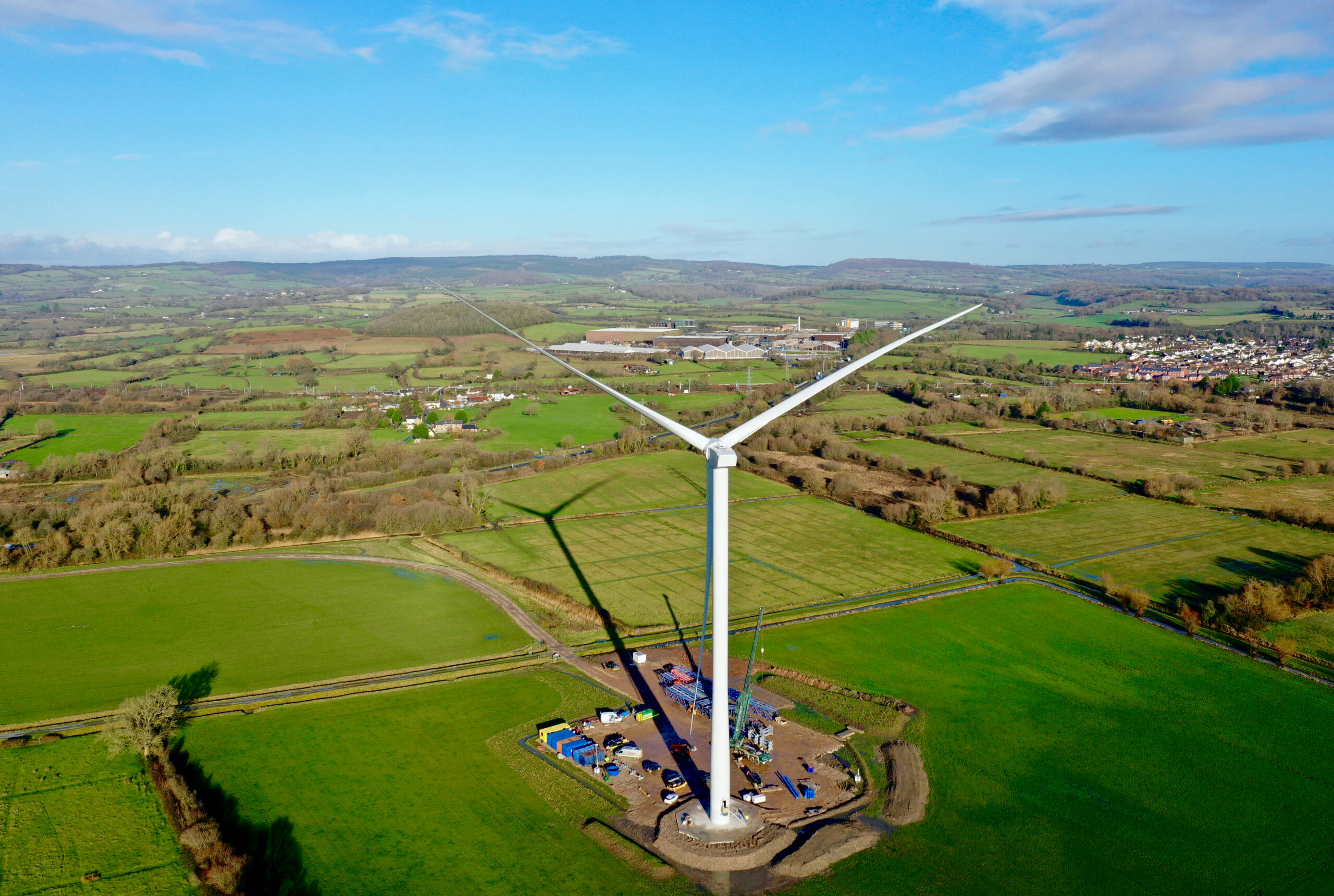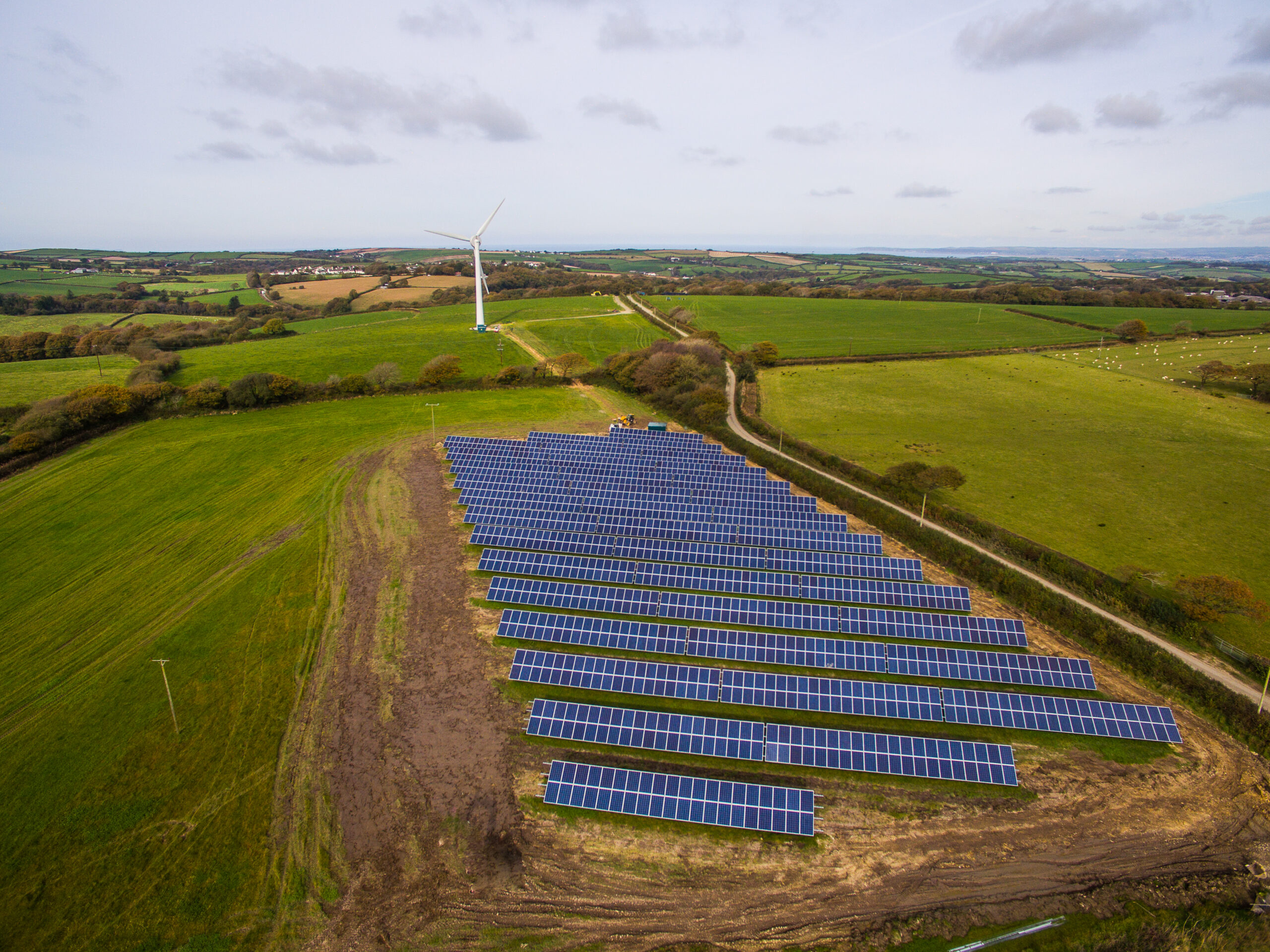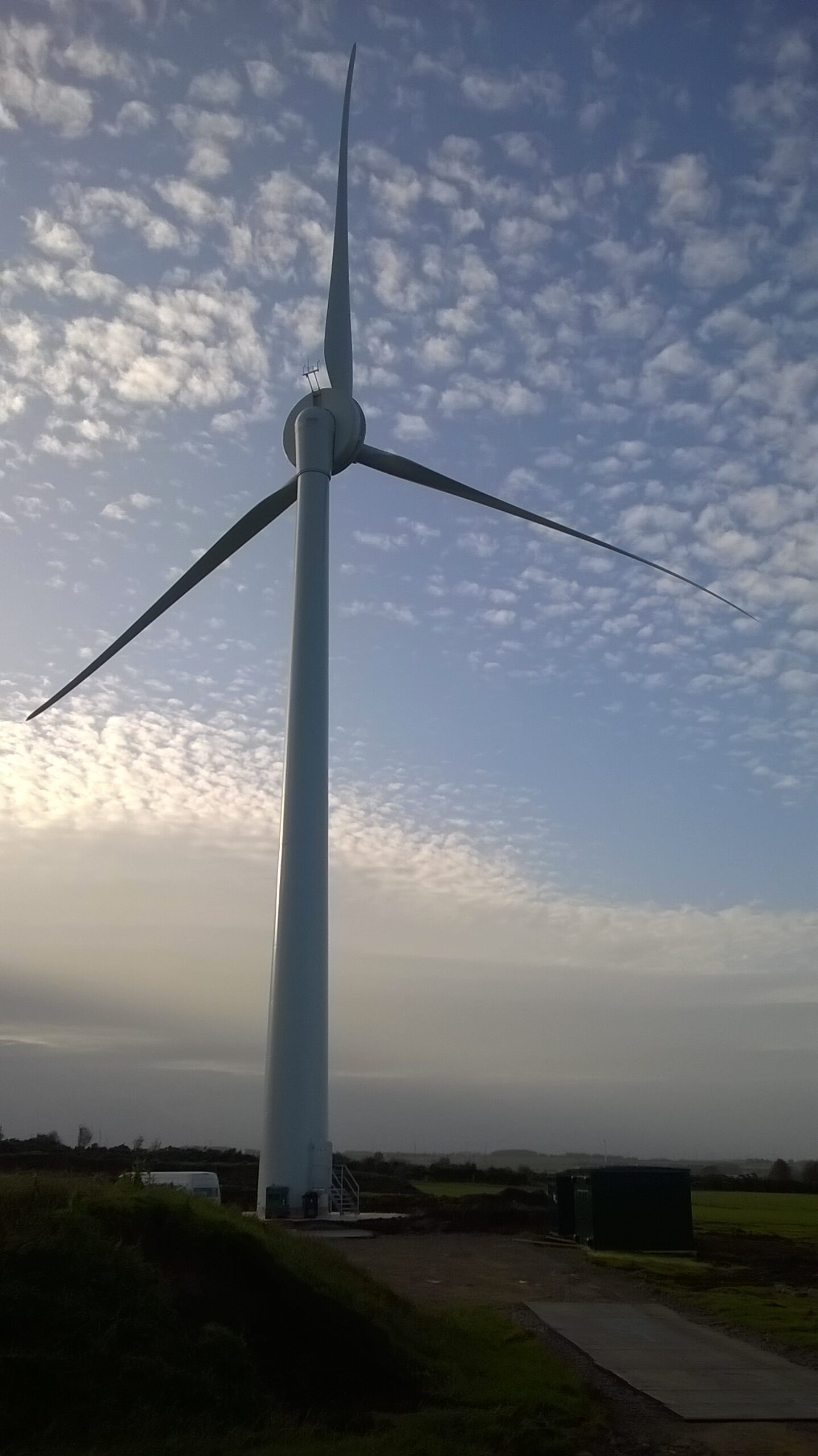Our turbine development for Accolade Wines in Avonmouth was distinctive for several reasons. But what made it truly unique was that it was the first to be constructed for a business that did not own the property the turbine was built on.
Most large enterprises lease their land and buildings – as Accolade Wines does for their massive Avonmouth distribution centre. Consequently, very few of them explore the opportunities for wind generation because they assume that their landlord simply won’t agree to it.
Shared vision and commitment
Accolade Wines, however, were as determined as we were to see the turbine built. The positive environmental and economic impacts of the project were clear from the outset, and as the UK’s Sustainable Manufacturer of the Year in 2018, they were continuing to push the green agenda.
Richard Lloyd, Accolade Wines’ General Manager of European Operations summed up the benefits: “this single turbine will save 2,500 tonnes in carbon emissions every year while significantly reducing our energy bills.”
Sustainability aligned with cost control
The 135 m turbine will generate over 7 million kWh each year, supplying 40% of the electricity needed to keep Accolade Park running. It will also save 60,000 tonnes of carbon emissions over its operating life.
And while the environmental benefits were clear, there was also a compelling commercial rationale.
With 80,000 sq m of factory to run, energy costs are a major feature on Accolade Wines’ P&L, and energy price volatility is therefore a major business risk. By sourcing a proportion of their electricity from the wind turbine via a Power Purchase Agreement (PPA), they fixed the cost and eliminated a large part of that risk.
Unique PPA arrangement
CleanEarth also established a uniquely flexible PPA to further mitigate the risks for Accolade Wines. This allowed them to opt out of the agreement in the event that grid import costs drop below the PPA rate.
“The trend for energy costs is clearly upward,” said CleanEarth’s managing director, Dean Robson. “But if prices do come down and drop below the floor in the PPA, Accolade can choose to switch to buying their power from the grid. They would save money but lose the environmental benefits.”
Location, location, location
Industrial sites such as Accolade Park are ideal candidates for wind generation. They’re where the electricity is needed, are removed from residential properties and are far less prone to the aesthetic sensitivities that often stand in the way of planning approval.
This is particularly true since the Written Ministerial Statement from June 2015 imposed a new and restrictive set of planning regulations in England.
Fortunately, Bristol’s local planning authority was enlightened enough to see beyond a literal interpretation of the WMS. Despite the city having no specific site allocations for wind energy development in its city plan, their Core Strategy included a target of 80% reduction in CO2 emissions by 2050 and identified Avonmouth as “having significant potential for renewable and low carbon energy installations”.
Environment and community
While supportive in principle of renewable energy, the Core Strategy was also committed to protecting the Severn Estuary’s environmental assets. Any proposal for development therefore needed to demonstrate how it would comply with the Habitats Regulations to avoid adverse effects on the Severn Estuary.
We conducted wintering and migratory bird surveys to ensure the area’s airborne citizens wouldn’t be affected by the new turbine. And down on the ground we also consulted extensively with the local community, through a public consultation event and community meetings.
We received strong support from the local community, who clearly recognised the merits of the scheme and the environmental and economic benefits it would bring. There was just one solitary objection, for potential shadow flicker from the turbine blades – an issue that was easy to resolve.
Minimal disruption
With up to 1,200 bottles of wine being processed through the plant every minute, it was essential for Accolade Wines’ business (and for the UK’s wine drinkers) that the production line suffered as little disruption as possible during the build.
In addition, pressure on parking space meant we needed to keep the footprint as small as possible. The final design did not require a crane pad alongside the foundation, so minimised the sterilisation of space. And the installation programme largely avoided any interruption to the distribution centre’s operations.
Last piece of the puzzle
The final requirement, however, was to get the landlord on board – and this is where so many similar projects have floundered. As Dean Robson put it, “we’ve talked to numerous businesses that would go for wind generation without hesitation, but because they don’t own the building they assume it’s a non-starter.
“The problem has been the perception that environmental and commercial benefits fall almost entirely to the tenant and do not extend to their landlord. This is a short-sighted viewpoint, but without a strong environmental incentive, the landlord has been reticent to co-operate.”
End-to-end responsibility
Two key things made a difference in this case: the unwavering commitment of Accolade Wines to making it happen, and the landlord’s recognition that responsibility for developing carbon-free industry rests with everybody involved, not just with the businesses that consume the most energy.
Charlie Seaton, a Director of Roebuck Asset Management, who manage Accolade Park on behalf of the owners commented, “this is a pioneering renewable energy initiative in the commercial property sector. We are confident it will set a precedent that others are sure to follow. Pressure from all quarters – shareholders, consumers, politicians, the media – it’s only going to increase. Landlords need to be alive to these challenges and should be setting their own environmental commitments.
“Developing on-site renewables for tenants is also a way for property owners to add value to their assets. As more businesses require carbon-free energy as part of their sustainability obligation, landlords will gain competitive advantage if it’s available at the point of consumption”.
A template for the future
The turbine for Accolade Wines set a precedent that could see many more heavy energy consumers committing to on-site turbines to power their businesses – expanding the potential for onshore wind development in the UK.
In Dean Robson’s words, “this was never going to be easy. But we knew that it was achievable with the right partner. It’s taken a lot of time and effort, but Accolade Wines and CleanEarth have achieved what many said could not be done.”


